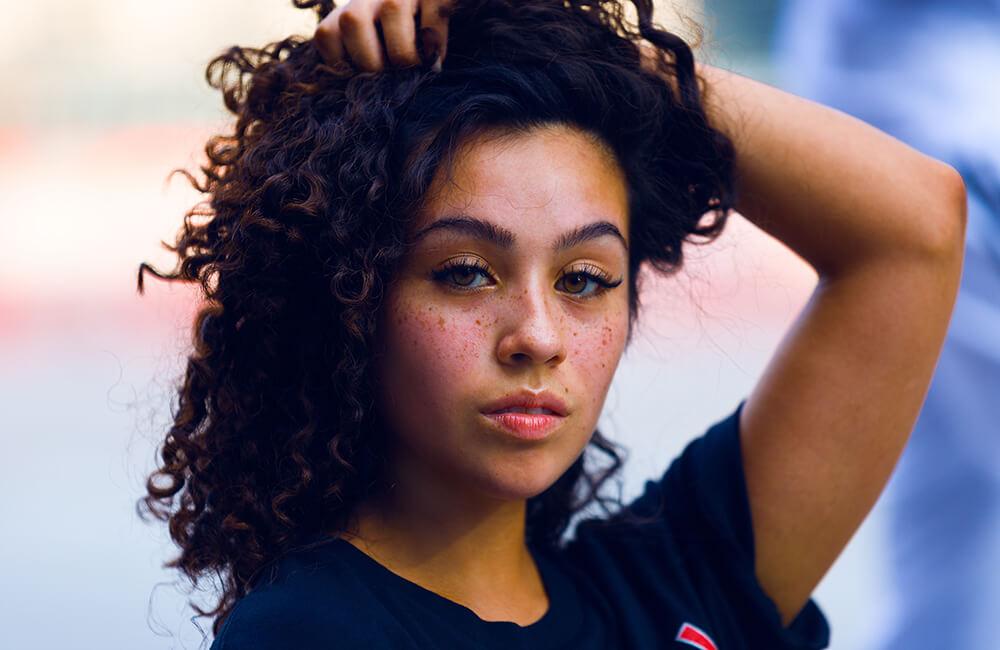We feel you - every day clients come in to our salons with scalp imbalances and irritations (so many people who deal with a dry scalp, dandruff, itchiness, eczema, psoriasis etc.)
Suffering from a dry scalp can lead to all sorts of concerns, as well as being just plain uncomfortable this type of skin irritation can blow up into an infection and become a real issue to deal with long term.
At best dry scalp can be flakey and itchy, at worst quite painful with broken skin that can lead to secondary infections. In a few extreme cases the follicle may even die off and a scar will form over the wound eventually leading to a bald spot on your head!
Luckily there are plenty of ways to treat your scalp specially formulated shampoos that can combat the causes of a dry scalp. We’ve also put together some useful tips and tricks that will help to heal your head and overcome any unsightly scaliness and dryness.
The Best Shampoo for Dry Scalp
The first step is to gently cleanse your hair using a soothing, targeted shampoo that will help alleviate the itching and scratching.
Ordinary shampoos can dry out your hair and scalp.
Often containing harsh chemicals, including sulphates that not only strip away dirt and grime but also your hair’s natural oils, you’ll want to avoid them when your head is dry and flaky.
Instead, look for sulphate-free formulas with conditioning ingredients to nourish your scalp.
Yes, you want your hair to be clean and shiny, but a good-quality moisturising shampoo will gently cleanse without drying it out.
Your method of shampooing your hair will also need changing up if you want the condition of your scalp to improve.
Dry Scalp Shampooing Technique
Focus your efforts on your scalp and roots. There’s no need to apply shampoo to the lengths of your hair. Healthy scalps produce healthy hair so from our professional point of view it’s always a scalp first approach.
If possible, meaning if the scalp is not highly irritated and if the skin is not broken, it is best to brush your dry hair and scalp before cleansing. This loosens any flakes or build up which will enhance the cleansing properties of your shampoo. If your scalp is broken, bleeding or weeping please consult your doctor or a pharmacist for their professional guidance on the correct treatment for you.
Once thoroughly brushed wet down your hair as normal.
Using firm pressure—either with your fingertips or a scalp massaging brush—massage the shampoo into your scalp.
Allow the shampoo to work its magic for a while before rinsing.
Rinse and repeat. Pro tip - it’s the second shampoo that will make the biggest difference. After massaging your scalp for a couple of minutes, go ahead and wash the rest of your body, before you rinse your hair.
It’s also important to apply a hydrating conditioner afterwards, leaving it be soaked up for a minimum of 2-5 minutes. Depending on the scalp condition you may be advised to avoid the scalp with this or it may not be a concern - ask your stylist for the best approach with this step.
Other everyday tips for fixing a dry scalp
In addition to choosing and using the correct dry scalp-busting shampoo, there are other simple steps you can take to get rid of those flakes and stop the itching.
Did you know, for example, that what you eat and the lifestyle you live can have a huge impact on the health of your hair and scalp?
Start by ensuring you get sufficient healthy proteins, such as those found in lean meats, fish, dark leafy greens and fresh eggs. Keep these all organic at all possible. The amino acids that make up protein are also the building blocks for every cell in your body, including the cells in your scalp!
A diet rich in Omega-3s—found in nuts, seeds, avocado, cold pressed oils (such as olive oils or flaxseed oil - absolutely do not use canola oil) and cold water fish — helps to normalise your skin fats to prevent dehydration and keep your skin and scalp lubricated.
"Eat your greens" is something that your mother may have told you as a child - now your hairdresser is telling you the same thing. Plants should make up the majority of your plate at each meal - that means 80% plus of the food on your plate should have come from a plant. Aim for as little as possible man-made foods. Basically the closer your food is to it's natural state the better it will be for you in all ways.
Increase your water intake, especially during hot or cold weather. Extreme temperatures and indoor heating and air-conditioning can dry out your scalp and skin, but drinking water regularly can help your body replenish any lost moisture. Most guidelines suggest two litres of clean filtered water per day at a minimum.
It is also known that a diet high in sugar (including fructose) can exacerbate dry scalp conditions as well as poor skin condition (acne etc). Similarly, an over-consumption of caffeine or alcohol can cause dehydration and liver issues. Try to avoid these as much as possible, especially if you notice that over consumption of these in the past has lead to an out break of your scalp/skin condition.
Reduce stress. Relaxation techniques such as meditation, mindfulness, yoga and deep breathing can strengthen the body’s natural defences and improve scalp health.
Stress and a lack of sleep often goes hand in hand with an itchy scalp and lots of other health concerns. It goes without saying that stress reduction will lead to better sleep. Try to utilise good sleep hygiene practice - turn off your mobile phone at least an hour before bed, dim your lights, darken your bedroom by pulling the curtains and be intentional in your sleep preparation. Sleep duration varies from person to person but as a guideline 7-10hrs is a great start.
Other lifestyle changes for when you can’t stop scratching:
Steer clear of hairdryers. Instead of blowdrying your hair, which can make dry skin problems worse, consider the more skin-friendly option of air drying.
The same goes for heat styling tools. The more you use curling tongs and straightening irons, the more your scalp dries out.
Do your final rinse with cool or lukewarm water. Shampooing your hair in hot water compromises your scalp health as you are inflaming an already sensitised area. Cold water also seals the hair’s cuticle, ensuring moisture within the hair shaft stays there. If you can’t bear the thought of giving up your hot shower, wash your hair as normal but finish with a cool rinse.
In summer time protect your head and scalp from UV rays by wearing a hat or other hair covering when outdoors during prolonged exposure to the sun. The last thing you want is a sunburnt scalp - that hurts so much!
Cut down on how often you wash your hair. Daily shampooing isn’t necessary and washing it too frequently can strip your hair of its own natural oils. The result is an over reaction by the sebum glands attached to the hairs follicle which then release extra oils... making your hair oily again almost immediately after shampooing. A vicious cycle that is really hard to break.
Rejuvenate your dry scalp by giving it loving care and attention.
In a perfect world, we would all have soft, shiny scalps that are never dry or flaky. But in reality, your head may require some TLC to keep it in optimal shape.
When restoring your scalp to its healthy and itch-free glory, it’s all about preserving and introducing moisture back wherever possible.
Whether you accomplish that with dry-scalp shampoo alone or in combination with other lifestyle changes, the healing and gentle care with which you treat yourself will achieve not just a healthier scalp but a more nurtured you.
Our top picks of the best shampoos for dry scalp.
This supremely soothing, extra-gentle shampoo satisfies your hair’s thirst for incredible softness and shine. Highly moisturising, yet weightless, Oribe’s Signature Complex (Watermelon, Lychee and Edelweiss Flower Extracts) defends hair from oxidative stress, photo-ageing and the deterioration of natural keratin all while protecting from the drying, damaging and colour-depleting effects of the elements.
Shu Uemura Cleansing Oil Shampoo
An emollient shampoo for dry hair and scalp that deeply purifies by removing impurities and buildup while rejuvenating dry hair and scalp with a precise dose of moisture. Leaves hair supple and cashmere-soft. Calms and regenerates itchy scalp with soothing oils. Safe on colour-treated hair. Paraben free and silicone free. For all hair types.
Original Mineral Hydrate & Conquer
For ultimate hydration, give dry, damaged or coloured hair some TLC with nutrient-rich Tasmanian Sea Kelp, Vitamins A, B, C & E and 13 amino acids to strengthen hair and stimulate growth.

